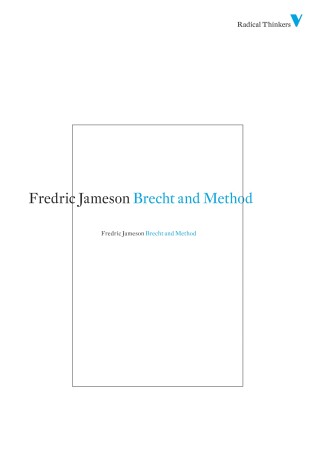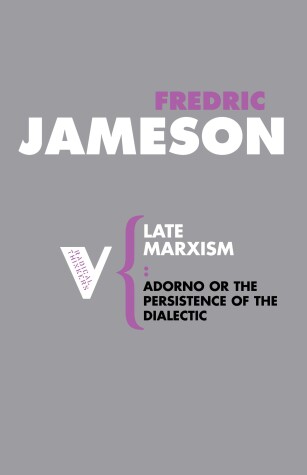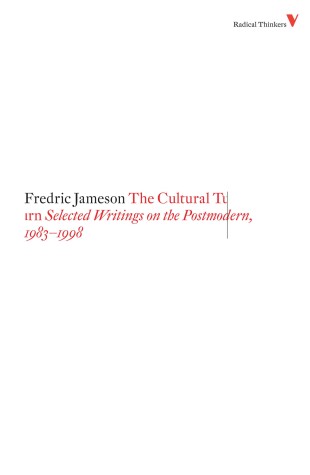Radical Thinkers
4 total works
Set 5
The legacy of Bertolt Brecht is much contested, whether by those who wish to forget or to vilify his politics, but his stature as the outstanding political playwright and poet of the twentieth century is unforgettably established in this major critical work. Fredric Jameson elegantly dissects the intricate connections between Brecht’s drama and politics, demonstrating the way these combined to shape a unique and powerful influence on a profoundly troubled epoch.
Jameson sees Brecht’s method as a multi-layered process of reflection and self-reflection, reference and self-reference, which tears open a gap for individuals to situate themselves historically, to think about themselves in the third person, and to use that self-projection in history as a basis for judgment. Emphasizing the themes of separation, distance, multiplicity, choice and contradiction in Brecht’s entire corpus, Jameson’s study engages in a dialogue with a cryptic work, unpublished in Brecht’s lifetime, entitled Me-ti; Book of Twists and Turns. Jameson sees this text as key to understanding Brecht’s critical reflections on dialectics and his orientally informed fascination with flow and flux, change and the non-eternal.
For Jameson, Brecht is not prescriptive but performative. His plays do not provide answers but attempt to show people how to perform the act of thinking, how to begin to search for answers themselves. Brecht represents the ceaselessness of transformation while at the same time alienating it, interrupting it, making it comprehensible by making it strange. And thereby, in breaking it up by analysis, the possibility emerges of its reconstitution under a new law.
Jameson sees Brecht’s method as a multi-layered process of reflection and self-reflection, reference and self-reference, which tears open a gap for individuals to situate themselves historically, to think about themselves in the third person, and to use that self-projection in history as a basis for judgment. Emphasizing the themes of separation, distance, multiplicity, choice and contradiction in Brecht’s entire corpus, Jameson’s study engages in a dialogue with a cryptic work, unpublished in Brecht’s lifetime, entitled Me-ti; Book of Twists and Turns. Jameson sees this text as key to understanding Brecht’s critical reflections on dialectics and his orientally informed fascination with flow and flux, change and the non-eternal.
For Jameson, Brecht is not prescriptive but performative. His plays do not provide answers but attempt to show people how to perform the act of thinking, how to begin to search for answers themselves. Brecht represents the ceaselessness of transformation while at the same time alienating it, interrupting it, making it comprehensible by making it strange. And thereby, in breaking it up by analysis, the possibility emerges of its reconstitution under a new law.
The concepts of modernity and modernism are amongst the most controversial and vigorously debated in contemporary philosophy and cultural theory. In this new, muscular, intervention Fredric Jameson, perhaps the most influential and persuasive theorist of postmodernity explores these notions in a fresh and illuminating manner. The extraordinary revival of discussions of modernity, as well as of new theories of artistic modernism, demands attention in its own right. It seems clear that the provisional disappearance of alternatives to capitalism plays its part in the universal attempt to revive 'modernity' as a social ideal. Yet the paradoxes of the concept illustrate its legitimate history and suggest some rules for avoiding its misuse as well. In this major new interpretation of the problematic, Jameson concludes that both concepts are tainted but nonetheless yield clues as to the nature of the phenomena they purported to theorize. His judicious and vigilant probing of both terms which can probably not be banished at this late date helps us clarify our present political and artistic situations.
In the name of an assault on “totalization” and “identity,” a number of contemporary theorists have been busily washing Marxism’s dialectical and utopian projects down the plug-hole of postmodernism and “post-politics.” A case in point is recent interpretation of one of the greatest twentieth-century philosophers, Theodor Adorno. In this powerful book, Fredric Jameson proposes a radically different reading of Adorno’s work, especially of his major works on philosophy and aesthetics: Negative Dialectics and Aesthetic Theory.
Jameson argues persuasively that Adorno’s contribution to the development of Marxism remains unique and indispensable. He shows how Adorno’s work on aesthetics performs deconstructive operations yet is in sharp distinction to the now canonical deconstructive genre of writing. He explores the complexity of Adorno’s very timely affirmation of philosophy — of its possibility after the “end” of grand theory. Above all, he illuminates the subtlety and richness of Adorno’s continuing emphasis on late capitalism as a totality within the very forms of our culture. In its lucidity, Late Marxism echoes the writing of its subject, to whose critical, utopian intelligence Jameson remains faithful.
Jameson argues persuasively that Adorno’s contribution to the development of Marxism remains unique and indispensable. He shows how Adorno’s work on aesthetics performs deconstructive operations yet is in sharp distinction to the now canonical deconstructive genre of writing. He explores the complexity of Adorno’s very timely affirmation of philosophy — of its possibility after the “end” of grand theory. Above all, he illuminates the subtlety and richness of Adorno’s continuing emphasis on late capitalism as a totality within the very forms of our culture. In its lucidity, Late Marxism echoes the writing of its subject, to whose critical, utopian intelligence Jameson remains faithful.
Series 4
Fredric Jameson, a leading voice on the subject of postmodernism, assembles his most powerful writings on the culture of late capitalism in this essential volume. Classic insights on pastiche, nostalgia, and architecture stand alongside essays on the status of history, theory, Marxism, and the subject in an age propelled by finance capital and endless spectacle. Surveying the debates that blazed up around his earlier essays, Jameson responds to critics and maps out the theoretical positions of postmodernism's prominent friends and foes.



